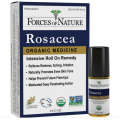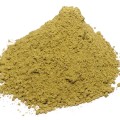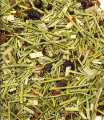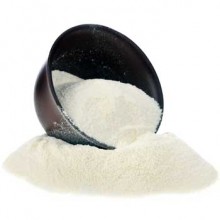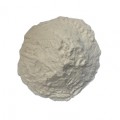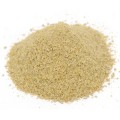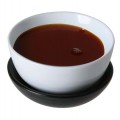 Loading... Please wait...
Loading... Please wait...- Home
- About Us
- Shipping, Returns & FAQ's
- Contact Us
-
For Your Information
- Canadian Customers Have a Choice if Shipping Via UPS
- Aura Cacia Homemade Aromatherapy Recipes
- Bella Nella Altered Art & Paper Crafts Blog
- Forms of Herbal Preparations
- Laundry Tips To Conserve Energy Blog from The Laundress
- The Story of Frontier Natural Products Co-Op
- Sovereign Silver Hydrosol and Aloe Protocol Stops Downward Spiral of Gut Dysbiosis
- Disclaimers
- Recommended Links
- RSS/Recent News
- The Story of Typhoon Housewares
- Reviews/Testimonials
- Raw Ingredients for Mfg
- Home
- Gums/Resins
- Guar Gum Powder Bulk
Guar Gum Powder Bulk
Product Description
- Guar gum has reasonably more thickening property as compared to corn starch.
- Holds back the growth of ice crystal
- Guar is draught resistant plant
- Guar gum forms gel in water
Guar gum is a polysacharide (a long chain made of sugars) made of the sugars galactose and mannose.
Some other familiar polysacharides are starch and cellulose, which are made of long chains of the sugar glucose.
Guar gum comes from the endosperm of the seed of the legume plant Cyamopsis tetragonolobus. Cyamopsis tetragonolobus is an annual plant, grown in arid regions of India as a food crop for animals.
As a hydrocolloid, guar gum, is treated as the key product for humans and animals as it has a very high nourishing property.
Health Benefits
Uses
Guar gum is used as a thickener, emulsifier and stabilizer in cosmetics, sauces, salad dressings, as an agent in ice cream that prevents ice crystals from forming, and as a fat substitute that adds the "mouth feel" of fat.
In pastry fillings, it prevents "weeping" (syneresis) of the water in the filling, keeping the pastry crust crisp.
It has a very high viscosity (thickness) even when very little is used.
When mixed with xanthan gum or locust bean gum, the viscosity is more than when either one is used alone, so less of each can be used.
Guar gum has 8 times the water-thickening potency of cornstarch. Only a small amount is needed to increase the viscosity of a product (.5%-1%). It can be added to cool, warm or hot water by slowly adding small amounts of guar gum to the water. Adding guar gum too fast or in large amounts at one time will cause it to clump and unevenly gel. A unique characteristic of guar gum, when compared to other thickeners, is that guar gum does not require heat to thicken an aqueous solution. Guar gum should not be used in recipes containing calcium or borax. Some recipes use guar gum and xanthan gum together to increase viscosity of lotions and creams. Guar gum acts as a stabilizer; preventing most solid particles from settling in finished products. Guar gum is considered an acceptible alternative for gelatin; and guar gum is vegan. However, when substituting guar gum for gelatin in recipes, divide the amount of gelatin by 6 to come up with the amount of guar gum you will need to use (amounts will differ according to the specific recipe).
Guar gum can be used in soaps to help achieve better emulsions, and as a whitening agent.
Guar gum can be used in lotion, cream, and ointment recipes as an emulsifier, thickener, and stabilizer. Suggested rate of usage in a recipe is 0.5%-2%.
Guar gum can be used in shampoo, conditioner, and liquid soap recipes to increase viscosity, and to allow solid particles to be suspended in the product.
Guar gum can be used in natural toothpaste recipes
Botanical Name: Cyamopsis tetragonolobus
Origin: India
Notes: Non-irradiated. FCC. Kosher. CAS: 9000-30-0. Approx 3 cups(dried)/lb. Mesh 200.
Read More About It
Guar Gum by Jesse Russell
Xanthan Guar Gum Diet Recipe [Kindle Edition] by Jada Sachs
1,001 Low-Carb Recipes: Hundreds of Delicious Recipes from Dinner to Dessert That Let You Live Your Low-Carb Lifestyle and Never Look Back by Dana Carpender
You Recently Viewed...
Currency Converter
Choose a currency below to display product prices in the selected currency.


